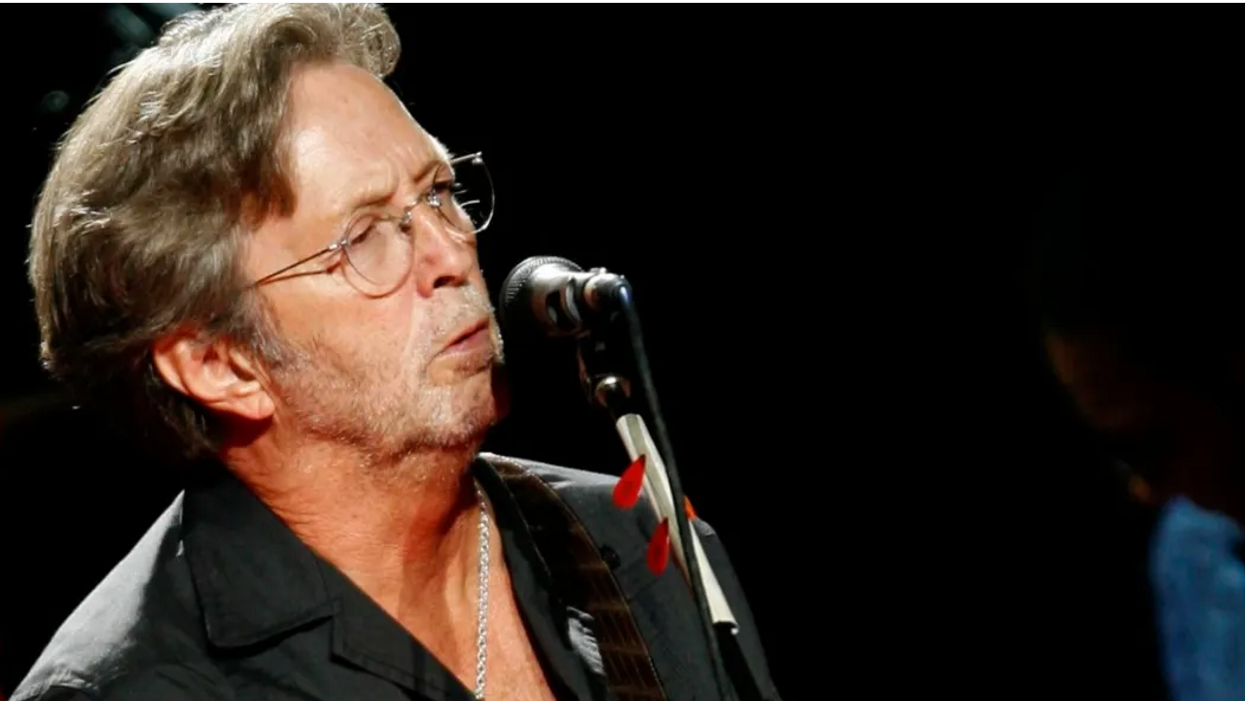
Eric Clapton
I've always thought of Eric Clapton as the Frank Sinatra of my generation: a consummate musical artist who's also kind of a jerk. Being a fan of Clapton has always involved making allowances for his personal history of impulsiveness and poor judgement: a one-time alcoholic and heroin addict whose signature song is a plea for the love of his close friend and former Beatle George Harrison's wife.
Even so, I have often found my own wife in tears listening to the paralyzingly beautiful extended piano and guitar coda at the end. We've listened to Layla many, many times, and traveled to hear him play it live. Clapton's genius lies not only in his sheer virtuosity, but his ability to wring crystalline emotion out of an electric guitar.
These Englishmen—Clapton, the Rolling Stones, The Who and others—took an under-appreciated African-American art form, the blues, ran it through their own sensibilities, and returned it to us highly-amplified and charged with grandeur. Pete Townshend has talked about his sudden realization that five blokes with electrified instruments could make as much noise as a symphony orchestra and thinking "Why not?"
And yet, and here comes the sad part, Eric Clapton once took the stage in Birmingham, England in 1976—stinking drunk, he has said in many subsequent apologies—and went on an extended rant about the importance of keeping England white. Channeling one Enoch Powell, basically the fascist-leaning George Wallace of Great Britain, he told his audience that "the Black wogs and coons and Arabs and f**ing Jamaicans don't belong here."
In a 2017 interview, Clapton told Rolling Stone that "It's incomprehensible to me, in a way, that I got so far out." He has elsewhere described himself as doing "really offensive things…I was a nasty person," and "full-tilt" racist.
His many black friends and musical collaborators over the years have by and large forgiven Clapton, if, indeed, they were ever aware of the incident—45 years ago, after all, and never repeated.
They describe acts of great personal warmth and generosity on his part. Since getting sober, Clapton has raised and donated an estimated $20 million in the past decade alone to the Crossroads Centre, the drug and alcohol rehab facility he built in Antigua in 1998. His efforts have helped thousands get clean.
Clapton's friend and longtime bassist Nathan East, a Black man raised in San Diego, put it this way in an interview with the Washington Post: "In the Olympics, they throw out the best score and the worst score," he said. "You get the measure of a person not on the day they did the very, very best thing they did and not the day they did the very worst thing they did." For him, "the beauty of music is that it really transcends language, color and politics."
The occasion of that interview, however, was what many fans of Clapton regard as his latest incomprehensible and perhaps unforgivable folly: Becoming a hardcore anti-vaxxer and recording an extremely silly protest song with Northern Irish singer Van Morrison:
Do you wanna be a free man
Or do you wanna be a slave?
Do you wanna wear these chains
Until you're lying in the grave?
That's right, blues fans, Eric Clapton has equated taking a Covid vaccine and participating in a (Tory-mandated) lockdown with being a slave. True freedom consists of running around maskless and unvaccinated in the middle of a worldwide disease epidemic. He has since vowed not to play at any venue where the audience is required to be vaccinated. At a concert in Austin, he posed for photos with Republican Gov. Greg Abbott, whose efforts to render Texans defenseless against Covid have few parallels.
Granted, Clapton himself had a bad experience with the Astra Zeneca vaccine, probably not the best choice for somebody like him affected by peripheral neuropathy—nerve damage in the hands and feet. The artist says he lost use of his hands for three weeks, which for a 76 year-old musician already fearful of losing his ability to play, must have been frightening.
His great friend Robert Cray, the eminent blues guitarist has taken offense. A blues purist and multiple Grammy Award winner, Cray tried to impress upon Clapton how grotesque he found comparisons between vaccines and slavery. He got nowhere. Then came the Greg Abbot business, and, just like that, a 35 year friendship was over. He cancelled an agreement to open for Clapton on a 2022 tour. "I've told myself, I don't need to have a conversation," Cray told the Post. "I'd just rather not associate with somebody who's on the extreme and being so selfish."
I do think "selfish" is exactly right. "Childish" would be another. The intense monomania necessary to Clapton's artistry can't abide the same frustration we've all had to deal with during the pandemic.
Too bad. He was one of the greats.
- Queen guitarist Brian May calls out Eric Clapton for anti-vax ... ›
- 'This Has Gotta Stop': Eric Clapton Releases Apparent Anti-Vax ... ›
- Eric Clapton's anti-vaxxer hypocrisy is on brand for him - Los ... ›
- Eric Clapton Goes on Anti-Vaccine Diatribe - Rolling Stone ›
- Eric Clapton's Covid vaccine conspiracies mark a sad final act ›
- Eric Clapton Isn't Just Spouting Vaccine Nonsense--He's Bankrolling ... ›








